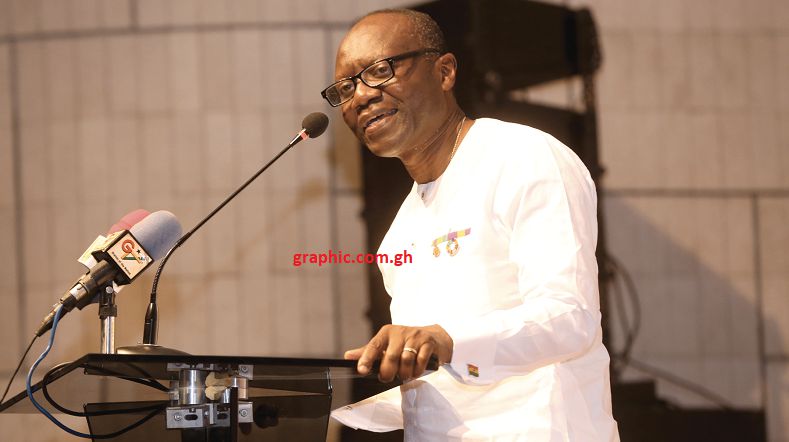The Minister of Finance, Ken Ofori-Atta, has called on the African Development Bank (AfDB) to position itself as the centre of Africa’s post-pandemic recovery.
He said the development bank must lay out a road map through its ongoing annual meetings that would allow the continent to build back better and effect a tectonic shift in the global financial architecture.
Mr Ofori-Atta said this in an address at the opening of the AfDB annual meetings in Accra on Tuesday, May 24, 2022.
He urged African Finance ministers and the board of the AfDB to use this year’s annual meetings to bring attention to the fact that the global financial architecture did not provide the requisite benefits needed by low- and middle-income countries to develop.
“Access to external capital markets is limited and costly. Currently, only 21 African countries have a track record of capital market access.
“Additionally, African countries with market access pay higher interest rates than their peers with similar or worse economic fundamentals,” he said.
He said estimates of what might be termed the “African premium” ranged from 100 to 260 basis points (one to 2.6 percentage points), even after accounting for economic fundamentals.
Debt service initiatives
The Finance Minister pointed out that although the multilateral and bilateral partners introduced well-meaning initiatives, such as the Debt Service Suspension Initiative (DSSI) and the Common Framework for Debt Treatment, their impact had been limited.
To date, he said, the three countries (Chad, Ethiopia and Zambia) that subscribed to the initiative were yet to receive debt reliefs.
He said it was time, therefore, to ensure that comprehensive support was offered to countries facing challenges with debt pressures.
“We can start by ensuring that the agencies that influence investment decisions leverage methods and processes that ensure that capital is directed towards well-appointed growth initiatives in emerging countries, such as ours, instead of earning sub-optimal returns overseas,” the minister said.
“Only then can we tackle the inherent ‘bias’ of African nations being viewed as riskier and thereby attracting expensive debts,” he said.
Mr Ofori-Atta added that the growth prospects on the continent were not bleak, especially once Africa was provided with the requisite capital to succeed.
Just Energy
Speaking on the theme for this year’s annual meetings: “Achieving climate resilience and a just energy transition”, the President of the AfDB, Dr Akinwumi Adesina, said the bank was spearheading a “Just Energy Transition for Africa”.
He said the bank had, since 2009, not funded any new coal projects.
“Not funding coal has now been formalised as a policy with our new Energy Policy approved by our board of directors,” he stated.
Desert to power initiative
Dr Adesina noted that Africa had perhaps the world’s largest potential for renewable energy sources, especially solar, hydro, geo-thermal and wind.
He said the bank was, therefore, implementing the $20-billion Desert to Power initiative in the Sahel to build 10,000 megawatts of solar power generation.
That, he said, would provide solar electricity for 250 million people and turn the Sahel into the largest solar zone in the world.
“The bank plans to establish the African Just Energy Transition Facility, which will be used to support African countries to transition from heavy fuel oil and coal power plants to renewable energy baseload power systems,” the AfDB President said.
“The bank is currently working with the government of South Africa in support of its efforts for Just Energy Transition,” he stated.
He said the AfDB was also working with the G7 countries to leverage their $8.5 billion financing for South Africa.
“Our approach will allow South Africa to raise $27 billion in support of its just energy transition plans,” Dr Adesina said.
Progress, however, would depend on developed economies fulfilling their commitment to provide at least $100 billion climate finance annually for developing countries, he said.
Source: Graphic Onlline





